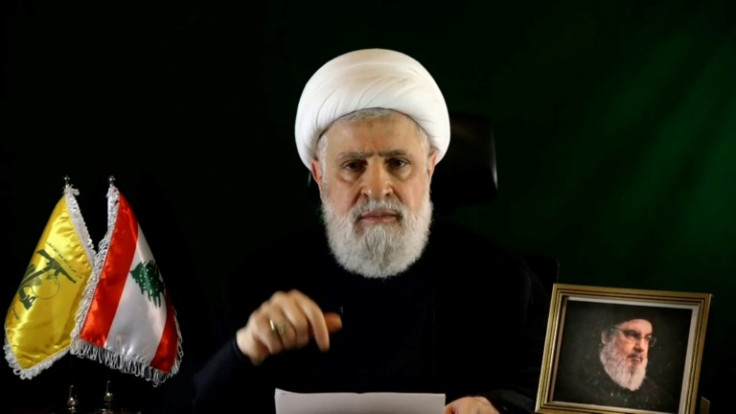Hezbollah Names Deputy Head Naim Qassem To Succeed Slain Leader

Lebanon's Hezbollah movement announced Tuesday it has chosen deputy head Naim Qassem to succeed Hasan Nasrallah as leader after his death in an Israeli strike on south Beirut last month.
"Hezbollah's (governing) Shura Council agreed to elect... Sheikh Naim Qassem as secretary general of Hezbollah," the Iran-backed group said in a statement, more than a month after Nasrallah's killing.
Hezbollah pledged to keep "the flame of resistance burning" until victory is achieved against Israel after all-out war erupted on September 23.
Qassem was elected by the five-member Shura Council, the group's main decision-making body, two days before Tuesday's announcement, a source close to Hezbollah said.
The source, who spoke on the condition of anonymity because he is not authorised to speak to the press, said a new Shura Council would be elected after the end of the war.
The council may then opt to elect a new leader or keep Qassem in the top post, the source said.
Qassem had long operated in the shadows of Nasrallah, a towering leader who was one of the most enigmatic and influential figures in the Middle East.
Hashem Safieddine, the head of Hezbollah's executive council, was initially tipped to succeed Nasrallah.
But he too was killed in an Israeli strike on Beirut's southern suburbs shortly after Nasrallah's assassination.
Hezbollah's Palestinian ally Hamas, whose October 7, 2023 attack on Israel triggered the Gaza war, welcomed Qassem's election.
"We consider this election evidence of the party's recovery from the targeting" of its leaders, Hamas said in a statement, pledging "support for the new leadership".
Qassem, 71, was one of Hezbollah's founders in 1982 and had been the party's deputy secretary general since 1991, the year before Nasrallah took the helm.
He was born in Beirut in 1953 to a family from the village of Kfar Fila on the border with Israel.
He was the most senior Hezbollah official to continue making public appearances after Nasrallah largely went into hiding following the group's 2006 war with Israel.
Since Nasrallah's death in a huge Israeli air strike on September 27, Qassem has made three televised addresses, speaking in more formal Arabic than the colloquial Lebanese favoured by Nasrallah.
With less charisma and fewer oratorical skills than Nasrallah, Qassem said the group will soon replace its assassinated leader.
He claimed Hezbollah's military capabilities were intact and backed efforts by parliament speaker Nabih Berri to broker a ceasefire.
In his last speech on October 15, Qassem said a ceasefire was the only way Israel could guarantee the return of its residents to the north.
The Israel-Hezbollah war erupted last month after nearly a year of cross-border fire.
On September 23, Israel ramped up strikes on Hezbollah strongholds and sent in ground forces while killing one member of the group's top leadership after another.
The war has killed more than 1,700 people in Lebanon since September 23, according to an AFP tally of health ministry figures, though the real number is likely higher due to gaps in the data.
The Israeli military says it has lost 37 soldiers in its Lebanon campaign since it launched ground operations on September 30.
© Copyright AFP 2025. All rights reserved.





















